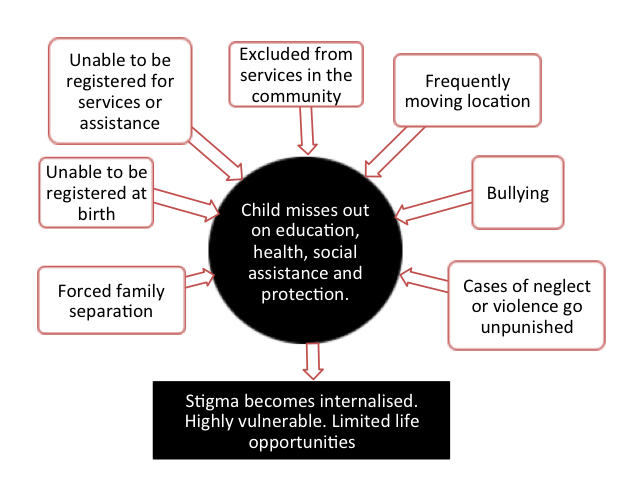Making Children of Key Populations a Priority for Equitable Development
Over the past two years, the Coalition for Children Affected by AIDS (the Coalition), together with 10 other partner organizations,[1] conducted the first global analysis of children of key populations affected by HIV and AIDS. The findings, some of which are highlighted in the graphic below, are deeply concerning-it is clear that these children are being overlooked and too often excluded from the global response to the epidemic.

Supporting children of key HIV-affected populations effectively requires a holistic, family-centered approach and for stakeholders from across a range of development sectors to work together. Last September, the Coalition convened several such groups to, collectively, work on a roadmap — with the right mix of care, support and advocacy — intended to reach these children. The resulting report, Making the Children of Key Populations a Priority for Equitable Development, provides details on the necessary interventions, which include:
- Investing in family-centred HIV services;
- Tackling stigma more effectively;
- Designing and delivering better care services for the children of key populations;
- Targeted inclusion in early childhood development and education programmes; and
- Strengthening laws, policies, and procedures so that the children of key populations can access full citizenship, services, and protection.
Much more detail is available in the advocacy briefing, which can be found here. Our hope is that this initial scoping exercise will drive further research, advocacy and, above all, better support for the children of key populations.
[1] The Coalition for Children Affected by AIDS; Global Network of Sex Work Projects (NSWP); The Global Network of People Living with HIV (GNP+); Harm Reduction International (HRI); International HIV/AIDS Alliance (The Alliance); International Network of People who Use Drugs (INPUD); The Global Forum of Men who have Sex with Men (MSMGF); Regional Interagency Task Team on Children and HIV for Eastern & Southern Africa (RIATT-ESA); UCSF Center for Excellence in Transgender Health; International Reference Group on Transwomen.